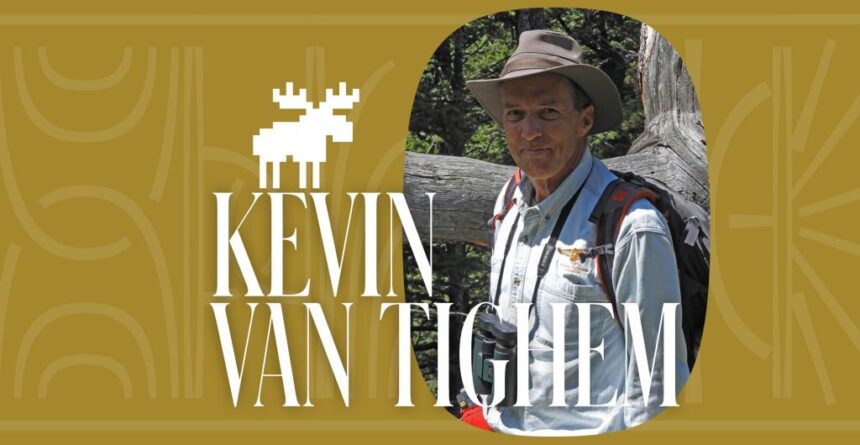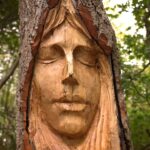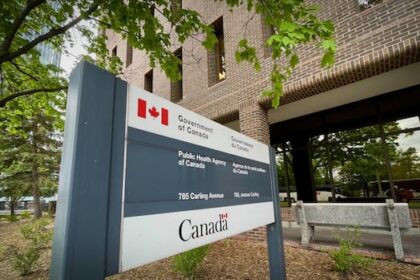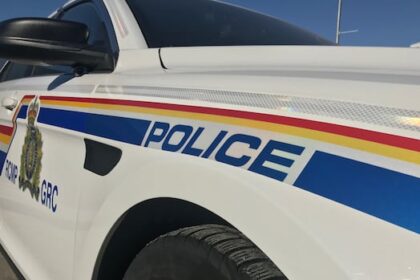As a young boy growing up near the Bow River in Calgary, Kevin Van Tighem followed his father into the woods for hunting and fishing expeditions. Those trips — undertaken in all manner of weather — provided Van Tighem with “early and intimate connections” to the natural world, creating memories he treasures decades later. It was the beginning of a life dedicated to learning from the landscapes of southern Alberta. A biologist by training, Van Tighem worked at several of Alberta’s national parks during his career, eventually becoming superintendent of Banff National Park before retiring in 2011. Since then, Van Tighem has turned to writing as a way to share his love for the native prairies, Rocky Mountain foothills and other ecosystems that matter most to him. He’s penned hundreds of essays, articles and stories, some of which have been collected into books such as Wild Roses Are Worth It and Our Place: Changing the Nature of Alberta. Van Tighem told us his writing is part of an effort to “re-story” our culture and help readers to feel their way back into a healthier relationship with nature. “Most of us have a very dysfunctional relationship with place,” he said. “We have built our culture around the othering of our relatives – reducing them to resources, reducing ourselves to consumers, reducing every relationship to a transaction.” “We all need help with how we know and value our relations.” As his latest book, Understory: An Ecologist’s Memoir of Loss and Hope, hits bookshelves across the country this fall, we asked Van Tighem to take The Narwhal’s Moose Questionnaire. This interview has been condensed and edited for length and clarity — all opinions are the subject’s own. What’s the most awe-inspiring natural sight you’ve witnessed between the Pacific, Atlantic, 49th parallel and Hudson Bay, i.e. Canada? That is such a hard question, but I finally settled on a golden eagle I once saw in Banff. It was on the Panther River, a couple long days into the backcountry. It came in high, and I could see that it was carrying something, and then it dropped its load. Probably a marmot or something about that size. Whatever it was just dropped like a shot, and then the eagle tucked into a long, curving dive and, just when it should have crashed into the trees, swept up, grabbed its prey out of midair, and continued the same curve up to land on the side of its nest. I’ve never seen such a display of perfect athleticism and skill. And it seemed clear that the eagle had done it for the sheer pleasure of it. It certainly inspired awe in me. What’s the most awe-inspiring natural sight you’ve witnessed outside of Canada? White-throated swifts skimming along the edge of the Grand Canyon. They’re one of the fastest birds in the world, with long pointed wings and a little chittering call. The sunset light turned them pink as they went skimming past, with those layers of ancient earth memory fading into shadow below. Turn around, and it’s just a quiet evening in the ponderosa pine forest; turn back and there is that aerial dance over an enormity of time and space too immense to possibly comprehend. It was magic. Think of three iconic Canadian animals. Choose one each to kiss, marry and kill. Kiss: a cutthroat trout, underwater, in a mountain creek. No tongue involvement, though. There have to be boundaries. Marry: a wolf. The places we would go together! And it would be nice to have a mate who’s also a hunting companion, and better at it than me. But then there’s those guns and snares, I suppose. Still: lovers in a dangerous time. It could be one of those tragic, doomed loves. A Boris Pasternak kind of thing. Kill: horseflies. I know they have their place on this planet. But they’re such ruthless little thugs. Sometimes the death penalty just seems warranted. Facing the choice of which Canadian animal to kiss, Kevin Van Tighem chooses the cutthroat trout. Photo: Jesse Winter / The Narwhal Name a person or group doing something meaningful for the environment that everyone should know about. At this stage of my life it’s almost impossible to name just one. I’ve been privileged to know and work with so many. But I think I’d name Nikki Jean and Patrick Tanner. They were inspired, after scrambling some peaks in Waterton Lakes National Park, to climb up and put smudge boxes on as many of those summits as they could in order to demonstrate the sacredness of those places to other visitors who were leaving less appropriate mementos behind. Given the importance of Ninaistako (Chief Mountain) in the Blackfoot way of being, they then went on to organize a series of hikes to its summits for other Kainai and Piikani people who had never been there. They didn’t do it as part of some grand initiative, but just because it was something they could do and it felt necessary and important. And I believe it was. You don’t need to be some famous scientist or passionate political activist to do something meaningful for the environment; you just need to step up and step out. Name one person who could significantly help mitigate the climate crisis if they really wanted to. The temptation is to say Elon Musk or King Charles or Pope Leo or even (heaven help us) Gina Rinehart. But I think the one person who is most critical at helping to mitigate the climate crisis is the one we see in the mirror each morning. Each of us chooses daily how to spend our money, how to transport ourselves around, who to talk with and what to talk about. Each of us votes, and each of us has the capacity to tell politicians what they need to do to earn our votes and retain our support. Right now, it’s hard to have any faith in democracy — certainly here in Alberta where we have a government that seems determined to open our mountain headwaters to coal mining regardless of the opposition, and even more so when we see the tragedy unfolding on the other side of the 49th parallel. But all power, ultimately, comes from people, and when people organize their lives around matters of principle, they become unstoppable. Ignore Trump; remember Ghandi. Outdoor cats: yes or no? No. For crying out loud. There are three billion fewer birds on this continent than when I was a kid. Why turn pampered, well-fed predators lose on those that remain when we can choose not to? Tell us about a time you changed your mind about something, environmental or otherwise. I’ve mostly changed my mind about domestic cattle. The more I look around at the ecosystems that most matter to me: native prairie and the montane foothills of southern Alberta, the more I realize that my simplistic “beef yummy; cows bad” position was in conflict with what the land was telling me. The last, best surviving tracts of healthy prairie are those that are being managed for cattle production, by ranchers. The rest have been lost to crop monocultures, urban sprawl, gravel mining and a host of other insults. Native temperate grasslands are among the most threatened ecosystems on the planet and where they survive it’s almost always because ranchers have managed to keep everyone else’s economic ambitions at bay. Having said that, I have no love for the intensive livestock production systems that produce much of our beef. A lot of cows are raised wrong and treated horribly. But I’ve become a strong advocate for policies that perpetuate cattle grazing as an economic use of native grasslands. These habitats survive in no small part because of cattle ranching. It would be easier if things were more binary, more black and white, but they rarely are. Tell us about a time you tried to change someone else’s mind about something, environmental or otherwise. One time I remember trying, and failing, was when three of us got a meeting with the Alberta government’s environment minister, maybe fifteen years ago or so. We were asking for land use changes that would reduce the devastation being wrought by motorized recreation and industrial clear-cutting in the Eastern Slopes of the Rocky Mountains. She brought a deputy minister with her. The minister leaned forward, asked questions, tried to look really engaged, because of course she was a politician and that was her job. And maybe she even was interested. But the deputy minister leaned back, out of her line of sight, and sneered at us through the whole meeting. I left knowing that my fifteen minutes with her wasn’t going to carry as much weight as that deputy minister’s four hours with her on their drive back to Edmonton. Yes, you have to choose: Rocky Mountains or Great Lakes? Rocky Mountains. I grew up with them on the western edge of my world. They inspired my imagination of the wild from before I can even remember and, later, became the places where I lived some of my best days. Nothing against the Great Lakes, but they’re outside my home range. Others, no doubt, have been inspired by them. And that’s good, too. Researchers at Yale University, the France-based Women’s Forum for the Economy and Society and other institutions have found women tend to be more concerned about climate change than men. Why do you think that is? I don’t know, but I do believe it’s true. Certainly in Alberta, where the oil industry has spent half a century doing all it can to divert young men into oil jobs where they become addicted to big paycheques. A lot of men — and it’s mostly men in those oil jobs, even today — become stubborn defenders of that industry. I think a lot of gender roles and gender perspectives are still hard-wired into our culture, so there may be a tendency for women to worry about family and community health and well-being more, and men to feel they have to be cool and just tough it out. Whatever the reason, it’s one reason why I think it’s a hopeful sign that more women are in decision-making roles and active in political life than in the past. But again, I’m from Alberta: we currently have some unfortunate exceptions here. As a lover of native prairie ecosystems, Kevin Van Tighem has changed his mind about cattle ranching. “The last, best surviving tracts of healthy prairie are those that are being managed for cattle production, by ranchers,” he says. Photo: Amber Bracken / The Narwhal If you could dip a toe off Canada’s coastline, which ocean would it be in? The Pacific. Those waters lap against the shores of Haida Gwaii, Kamchatka, the Philippines, all those places that are most unlike the places from which my ancestors came. There are five species of salmon in those waters, and in their annual spawning runs they marry the sea to the mountains behind me in ways that really fire the imagination. What’s a beautiful or useful thing you’ve owned for a really long time? My senses. And my health. What’s the farthest north you’ve ever been and what did you do there? When I retired, my nephew Graham called me from Whitehorse and said that, after all the years that he had spent tagging along on hunting trips with me in southern Canada, he’d like to treat me to a caribou hunt. We ended up at a small lake near the head of the Pelly River. Only thing is, there were no caribou there. We ended up with a moose instead, and I drove almost non-stop back from Whitehorse, through unseasonably warm weather, to get my two quarters of that animal home so that we could get it into the freezer before it spoiled. We ate Yukon memories for a couple years, and they were all good. What’s one way you interact with the natural world on a daily basis? Of late, I find myself either walking along the Highwood River floodplain through cottonwood forests or sitting beside the Oldman River listening to what it has to say. It has a great deal more to say than I can understand, but I believe it’s worth listening anyway. If you could ask one person, alive or dead, about their thoughts on climate change, who would it be? It might be interesting to get Mark Twain’s opinion. It might not be well-informed, but it would certainly be colourful. Yes, you have to choose: smoked salmon or maple syrup? Smoked salmon, if I really have to choose. Salmon are like bison or northern caribou – they are sacred beings that feed our souls and our relationship with the world as much as they feed our bodies. But fortunately, I don’t have to choose: we can get smoked, maple syrup-cured, wild sockeye salmon here. Canada, eh? Kevin Van Tighem’s new book is described as a memoir that “journeys into the complexities of nature, grief and the search for meaning in the autumn of life.” Photo: Supplied by Rocky Mountain Books Who, in your life, has had the greatest impact on your connection to nature? I would have to say my father, Jack Van Tighem. Dad was an introvert, a man of rigid principles, who allowed himself and his family few indulgences. He worked hard, and he worked long hours, because of his value system. And on weekends, or during his vacation time in summer, he fished and hunted. In his view, that’s what Saturdays and holidays were for, regardless of the weather. I think a couple times I came close to serious hypothermia while fishing in sleet storms or hunting during prairie blizzards. But that regimen of getting out into nature, in all her moods, at all seasons, was what brought me into early and intimate connections with the places and fellow beings that now pretty much form my identity. I still find myself dwelling on memories from those brief childhood years tagging along behind Dad. Whose relationship with the natural world would you most like to have an impact on? Everyone’s, I guess. We are such a disconnected culture; most of us have a very dysfunctional relationship with place, with other beings, with the real world. We have built our culture around the othering of our relatives — reducing them to resources, reducing ourselves to consumers, reducing every relationship to a transaction. I overstate it, but that doesn’t mean it’s not fundamentally true. My latest book, Understory, goes into this more deeply. In my writing, I try to do my part in re-storying our culture, in hopes that some readers at least will start to rethink and re-feel the way we live. We are not in a good place these days, and we may be heading for some very dark times. I don’t have any particular demographic or target I would like to have an impact on; our problem is cultural and so it involves almost all of us. We all need help with how we know and value our relations. So I suppose the answer is: everyone’s. I’m still working on myself, frankly. Would you rather be invited to Victoria and David Beckham’s Muskoka cottage, or Harry and Meghan Sussex’s B.C. escape? I think I’d choose the Beckhams’ Muskoka cottage, mostly out of curiosity. I don’t know Ontario’s landscapes very well. First thing I’d do is ditch both of them, and head off into the woods with my binoculars and a sandwich. There’d be some things worth meeting there, I’m sure. Trilliums, maybe. Prothonotary warblers, perhaps. Beckhams and Sussexes, though? Meh. Camping: yes or no? Yes. But at my age that comes with new issues. Like getting up and down off the ground: it’s not as straightforward as it was back in the day. And those dark night visits to the outhouse, of which aging increases the frequency. But the patter of rain on a tent fly, the sound of birdsong through canvas, the smell of morning coffee mixed with woodsmoke — of course it’s yes. Recent Posts The former head of Canada’s busiest national park reflects on ‘dark times’ and what to do about them Oct. 1, 2025 12 min. read ‘When people organize their lives around matters of principle, they become unstoppable,’ Alberta nature writer… How do we commemorate the sites of former residential schools? Sept. 29, 2025 13 min. read Some survivors want residential schools dubbed historically significant; others want them demolished. They’re forging ahead,… Is mining ‘still the one’ in northern Ontario? A past effort to attract fan tourism to Shania Twain’s hometown of Timmins didn’t go…
The former head of Canadas busiest national park reflects on dark times and what to do about them











